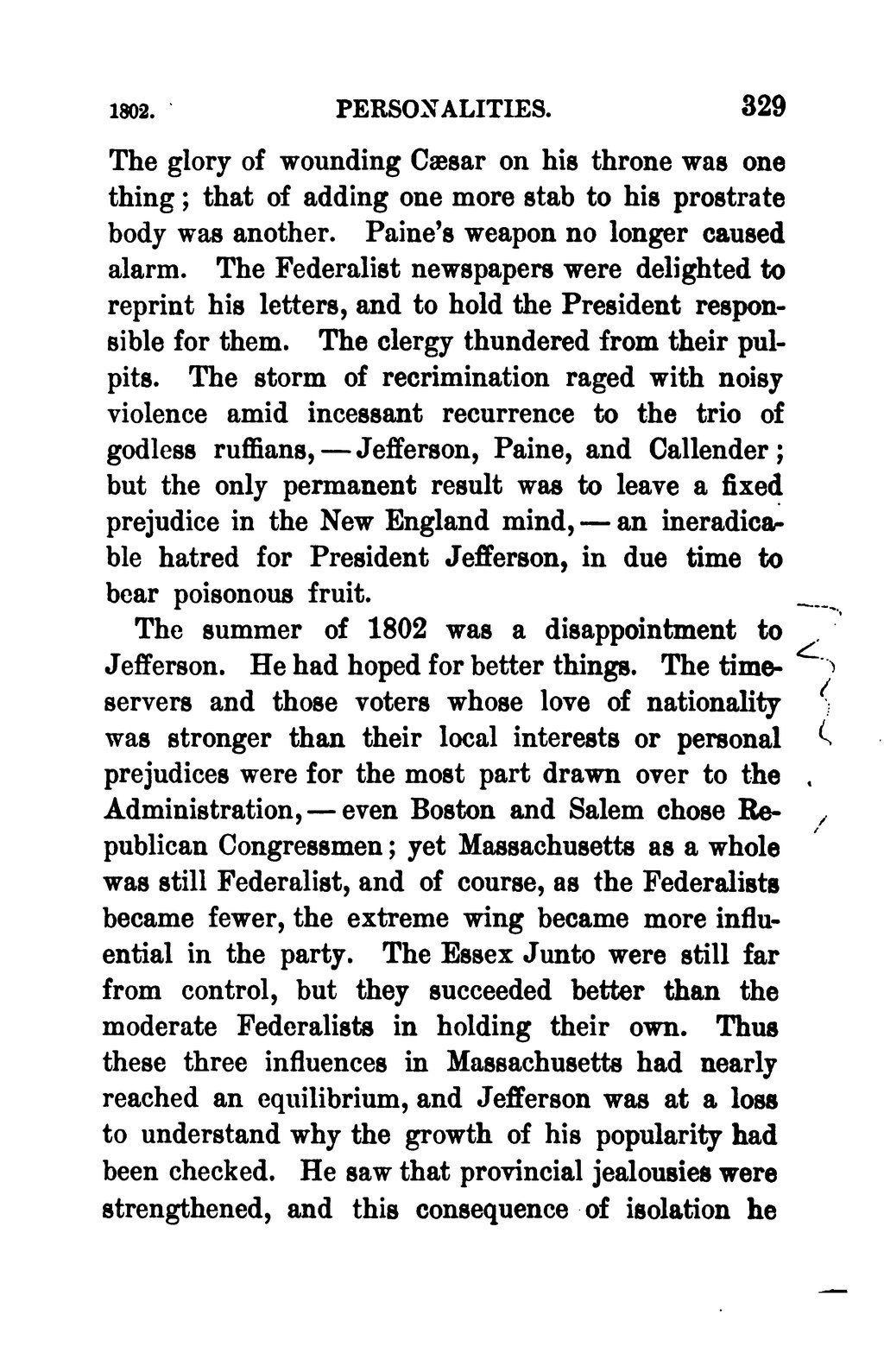The glory of wounding Cæsar on his throne was one thing; that of adding one more stab to his prostrate body was another. Paine's weapon no longer caused alarm. The Federalist newspapers were delighted to reprint his letters, and to hold the President responsible for them. The clergy thundered from their pulpits. The storm of recrimination raged with noisy violence amid incessant recurrence to the trio of godless ruffians,—Jefferson, Paine, and Callender; but the only permanent result was to leave a fixed prejudice in the New England mind,—an ineradicable hatred for President Jefferson, in due time to bear poisonous fruit.
The summer of 1802 was a disappointment to Jefferson. He had hoped for better things. The time-servers and those voters whose love of nationality was stronger than their local interests or personal prejudices were for the most part drawn over to the Administration,—even Boston and Salem chose Republican Congressmen; yet Massachusetts as a whole was still Federalist, and of course, as the Federalists became fewer, the extreme wing became more influential in the party. The Essex Junto were still far from control, but they succeeded better than the moderate Federalists in holding their own. Thus these three influences in Massachusetts had nearly reached an equilibrium, and Jefferson was at a loss to understand why the growth of his popularity had been checked. He saw that provincial jealousies were strengthened, and this consequence of isolation he
